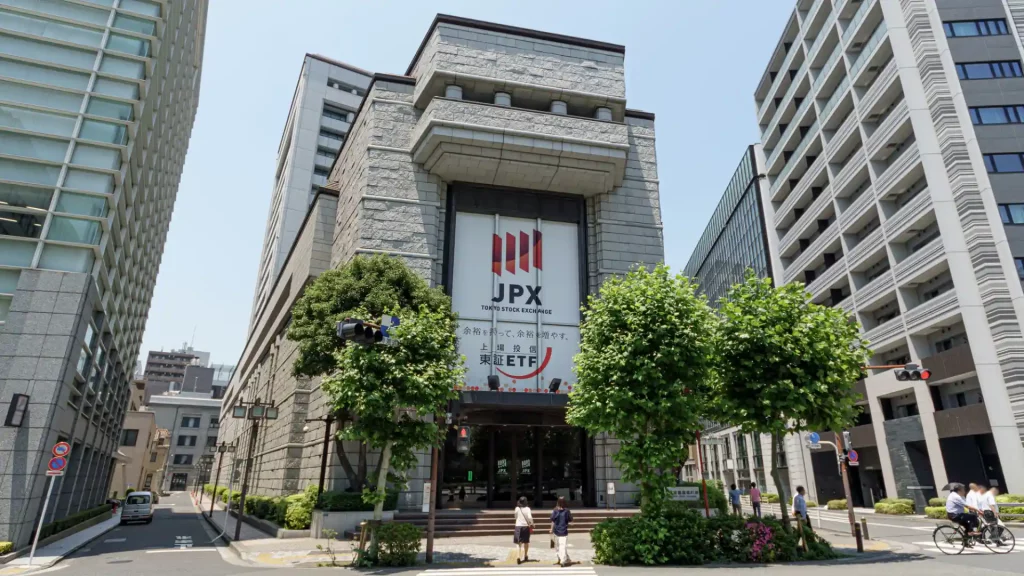Numerous overseas strategists are looking at Japan from traditional economics and monetary science viewpoints
Since the beginning of 2023, Japan‘s stock markets have exhibited remarkable performance, frequently surpassing 33-year highs and surpassing those of the rest of Asia. However, there is growing apprehension that the wave of “zombie” enterprises may end this upswing.
Zombie companies are not making money, but they are not yet out of business. These companies are also unable to maintain operation costs such as wages and rentals or make interest payments on debt. This long-standing issue worsens with potential interest rate hikes, risking mass bankruptcies and economic ripple effects due to job losses.
A Rising Tide of Struggling Businesses
Around 250,000 technically zombie businesses existed in Japan by the end of 2023, according to journalist William Pesek, who is based in Tokyo. In an interview that happened on January 29, 2024, Pesek also stated that he had seen a 30% increase in the number of zombies over the last 11 years. The issue of “zombification” was made worse by the Covid-19 pandemic. In Japan, the number of zombie companies increased by over a third between 2021 and 2022.
Teikoku Databank, a market research firm, highlighted in their November 2023 report that there has been a sudden rise in the number of zombie companies since the coronavirus outbreak. This further supported Pesek’s views. According to this report, the number of “zombie companies” has climbed to 30 times the total number of corporate bankruptcies reported in Japan in 2023, primarily as a result of unsecured, nearly interest-free “zero-zero” loans.
By the end of September 2022, nearly 2.45 million loans, totalling about 43 trillion yen, have been disbursed. This was done to help small and medium-sized businesses. Japan’s aid program offered “virtually interest- and collateral-free loans”.This kept those companies afloat and also supported the country’s local economy.
The Effect of Growing Interest Rates
Pesek also mentioned in another interview that numerous overseas strategists are looking at Japan from the traditional economics and monetary science viewpoints. He also stated that for more than 20 years, Japan has experienced negative or zero interest rates.
The increase in interest rates would result in higher borrowing costs for the interest-free loans that zombie companies have become dependent on. This will also drive these businesses to the verge of bankruptcy.
Since 2023, Japan’s stock markets have also been reaching new heights. This meant that the bull run could come to an end due to rising interest rates.
The Nikkei 225, a stock market index for the Tokyo Stock Exchange, had also reached a certain point in almost 34 years. These zombie companies are threatening the current situation of the stock market.
Are Zombie Firms Overstated?
Analysts from Julius Baer, a private banking corporation, have a different perspective. They believe that zombie companies could cause wider repercussions in the third-largest economy in the world.
Bhaskar Laxminarayan, an investment management head at Julius Baer based in Asia, stated that he thinks of zombie companies as much smaller firms. According to him, large-size companies are drawn to the Japanese markets by investors since they have a sizable quantity of cash on their balance sheets.
Julius Baer said that Japanese corporations have a cash-to-market capitalization ratio of 21% in its 2024 projection. The Swiss private bank claims that this is in contrast to 7% for American businesses.
Larger companies have been witnessed to be much more financially stable, with a cash-to-market capitalization ratio of 21%. ( in comparison to the 7% for US firms). This implied that the additional cash would increase their return on equity and support share buybacks, which are now at 0.7%–1.4% (compared to 2%–3.5%) in the US, which might raise share prices.
